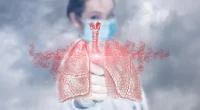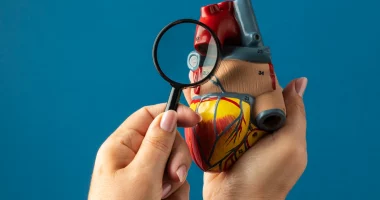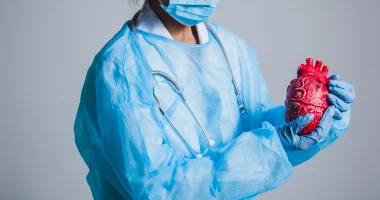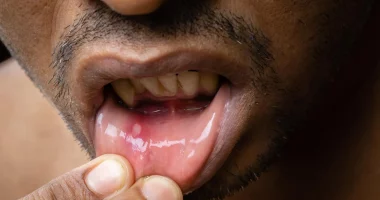Atypical depression is a type of depressive disorder. It shares many symptoms with regular depression. But there’s a difference, when things get better then the person’s mood can improve.
This type of depression also brings extra physical problems like feeling super tired, wanting to eat more, and sleeping more. It might also make someone very sensitive to feeling rejected.
Sometimes people mix up the term “atypical depression” with just any kind of depression that doesn’t fit the usual ideas. But actually, it’s a specific kind of depression with its own rules for diagnosis.
Treating atypical depression is kind of like treating other types of depression. But sometimes, certain medicines called monoamine oxidase inhibitors (MAOI) work better for it.
What’s different about atypical depression?
It is not quite the same as what most people think of as depression, called melancholic depression. Melancholic depression is when someone feels really sad all the time and can’t enjoy things.
With atypical depression, people can feel super sad too, but there’s a twist. Good stuff happening or just having hope for the future can actually make them feel better. So, it’s kind of tied to what’s going on in their life.
Here are some other things about atypical depression:
- It often sticks around longer.
- It’s more common in women.
- It can make people eat too much and gain weight.
- It might make someone feel super tired or want to sleep a lot.
- It could make their arms and legs feel really heavy.
There was a study in 2017 that said atypical depression might make people more likely to have heart problems. It shows that depression isn’t just in the mind; it can affect the body too.
Symptoms
When someone has atypical depression, it means they’re dealing with major depressive disorder, which is basically being really sad or overwhelmed. Usually, when we think of depression, we picture feeling sad all the time and not finding joy in anything. That’s called melancholic depression.
But with atypical depression, things can change. When life gets better, they might start feeling better too, but if things get worse, their depression might get worse too. Even when they start feeling okay for a while, the sadness could come back.
Here are some things to look out for with atypical depression:
- Sleeping a lot.
- Feeling slow or like everything is too heavy.
- Eating too much and gaining weight.
- Feeling better when something good happens.
But remember, atypical depression isn’t a completely different thing from melancholic depression. They’re both types of major depression and have lots of the same symptoms.
Some other stuff someone might notice if they have either type of depression includes people experiencing depression might encounter various emotions and physical sensations, such as anger, feelings of worthlessness, and a sense of hopelessness. They might struggle with low energy levels, experience pain or headaches, and have specific food cravings. Additionally, they may feel either excessively tired or unusually energized. These individuals might also have thoughts of self-harm and find it challenging to maintain healthy relationships due to their depression.
Causes
Understanding what causes major depressive disorder (MDD) is like trying to solve a puzzle with many pieces. Researchers often use a biopsychosocial model, which means they believe that depression doesn’t have just one cause. Instead, it’s a mix of different things that all come together. These things include your environment, your genes (the stuff you inherit from your family), how you interact with others, your health, and more.
There are some things that can make someone more likely to have depression, though. These are called risk factors. Some risk factors for depression include having family members who’ve had depression before, going through difficult or traumatic experiences, big changes in your life, feeling stressed out a lot, having serious health problems, and going through big biological changes like having a baby or going through the phase of menopause.
In a study from 2019 that looked at atypical depression, they found some things that were more common in people with this type of depression. These included starting to feel depressed at a younger age, having depression come back again and again and getting worse each time, doing things that aren’t good for your health, being female, having a lot of tough things happen in your life, and having a higher chance of getting certain illnesses like heart problems or metabolic syndrome.
Diagnosis
Finding out if someone has depression isn’t as simple as taking a test. Doctors figure it out by looking at the symptoms someone is having.
Sometimes, though, they might want to make sure it’s not something else causing those symptoms. For instance, a condition like hypothyroidism can make someone feel a lot like they’re depressed.
So, if a doctor think there might be something else going on, they might ask for some tests like bloodwork. But usually, they can tell if someone has depression just by listening to what symptoms they’re having. It’s really important for the person to talk about everything they’re feeling so the doctor can make the right call.
To figure out if someone has atypical depression specifically, they look for a few things. One is if the person starts feeling better when something good happens. They also check if the person doesn’t have certain symptoms that usually come with another type of depression called melancholic depression. Then, they see if the person has at least two of these like being really sensitive to feeling rejected, sleeping way too much, eating too much and gaining weight, or feeling like their arms and legs are super heavy.
Depression Treatment
When someone has depression, there are a couple of main ways to help them feel better. Some are talking with a therapist (that’s called psychotherapy) and taking certain medicines (called antidepressants). Talking with a therapist can be really helpful because it lets the person work through their feelings, not feel so alone, and learn how to handle those sad thoughts better. For example, in one type of therapy called cognitive behavioral therapy, they’ll learn how their thoughts can affect how they feel and what they do.
For atypical depression, some antidepressants might work better than others. There’s a group of older medicines called monoamine oxidase inhibitors (MAOIs) that seem to work well for this kind of depression. It’s a good idea to talk to a doctor about trying one of these first.
But these medicines can have some side effects like feeling dizzy, nauseous, or getting headaches. They can also be risky if someone is taking other medications, so it’s really important to let the doctor know about everything they’re taking.
One thing to be careful about with MAOIs is that they can mess with how the body breaks down a substance called tyramine. If the body can’t break it down right, it could cause serious problems, even brain damage or death. So, it’s important to ask the doctor which foods to avoid. Usually, foods like fish, meat, liver, and salami have more tyramine, especially if they’re not fresh.
Living with atypical depression
Atypical depression often comes back even after it’s been treated. This means someone might have to keep getting help for it and make a plan for what to do if it comes back. Here are some things that might help:
- Watch out for things that make the depression worse: If someone knows what makes them feel more depressed, they can do something about it sooner.
- Find things that make them feel better: Some people feel better when they exercise, spend time with family and friends, do things they enjoy, stick to a routine, or do activities like reading.
- Build a good relationship with a therapist: If the depression comes back, they can help figure out what to do. Take care of their body as well as their mind like eating healthy, sleeping enough, and staying active can all help.
- Ask for assistance from family and friends: Sometimes, people close to someone with depression can notice if they’re feeling bad again before the person even realizes it.
Summary
Living with atypical depression means dealing with its tendency to return, requiring ongoing treatment and a relapse plan. Strategies include identifying triggers early, engaging in activities that bring relief, and maintaining physical and mental well-being.
Building a supportive relationship with a therapist and seeking help from loved ones is essential. Awareness of triggers, healthy habits, and open communication can aid in managing the condition effectively. With mindfulness and support, individuals can navigate the challenges of atypical depression and lead fulfilling lives.








